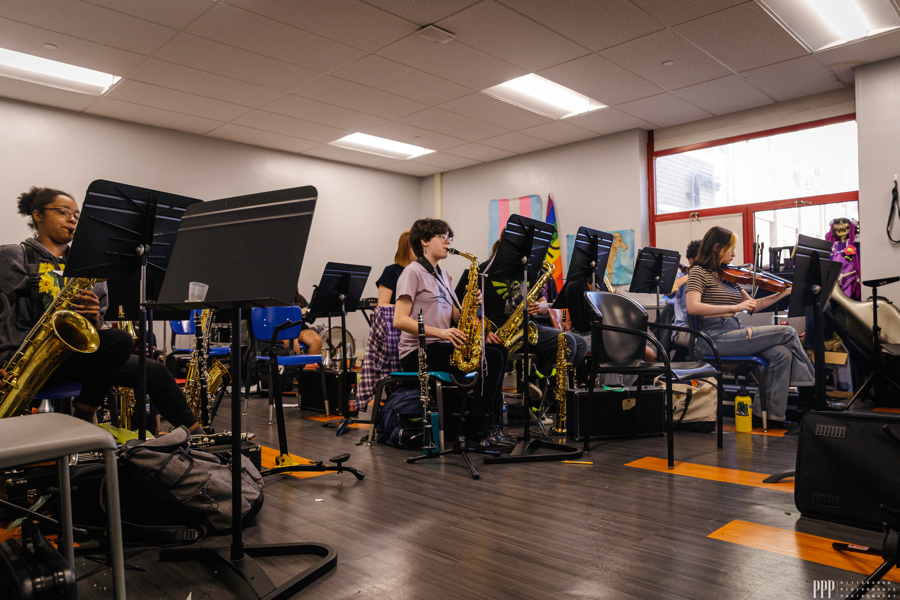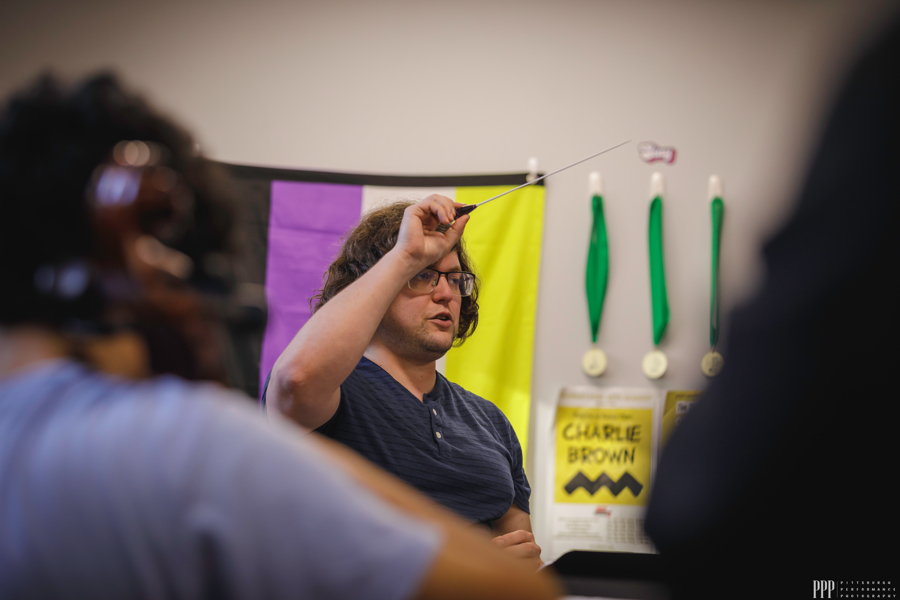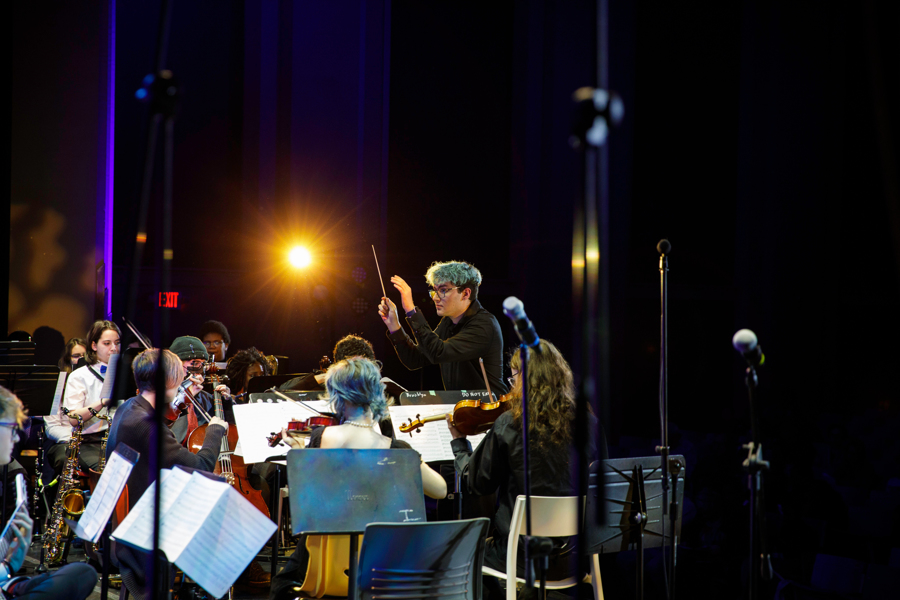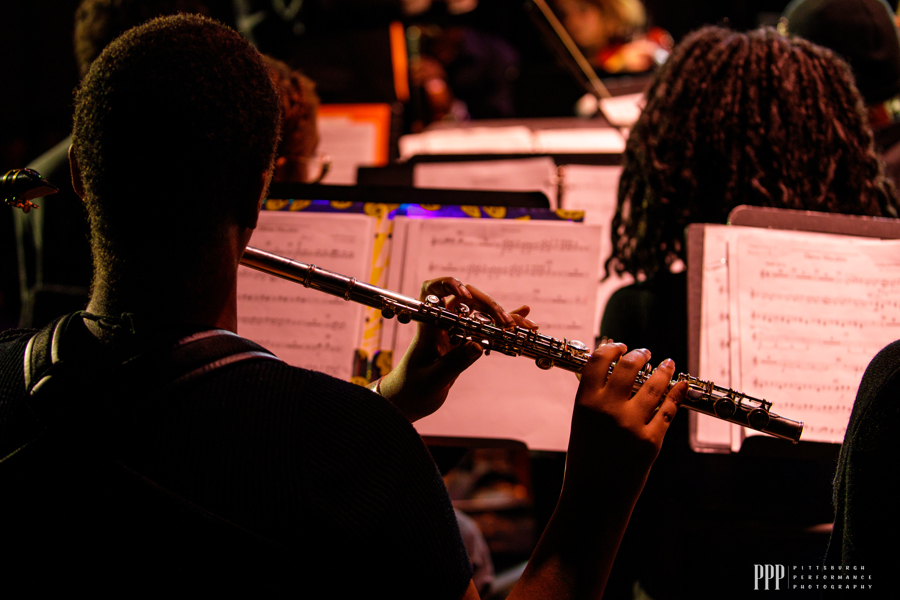Instrumental Program
The Instrumental Music program focuses on developing the musicianship of instrumental students through a variety of instruction, rehearsal, and performance. Students will rehearse and perform instrumental literature from different styles and time periods as a large group, in smaller ensembles, and in solo settings. As they play the music, students learn about the intricacies of different musical styles and broaden their horizons as performers and musicians.
The Instrumental Music program provides opportunities for instrumentalists to grow as musicians in a variety of ways. Instrumental Music students spend each semester in one of WAA’s instrumental ensembles (either Instrumental Ensemble or Chamber Ensemble) or sometimes in both. These ensemble classes consist of instruction in various aspects of musicianship, group rehearsals, and performances.
Instrumental students typically perform for major productions such as the Music Department’s Fall Concert, the Performing Arts Department’s Holiday Spectacular, the Gala Fundraiser, the Spring Musical, the Music Department’s Spring Concert, and Art in the Park. There are also regular performance opportunities for smaller events, such as monthly Studio classes.
In addition to their ensemble classes, all students take 4 semesters of Music Literacy to gain a thorough understanding of music theory and develop aural skills. Music theory is an important bank of knowledge for any well-rounded musician to be able to draw from. Aural skills make musicians more effective in both solo and in ensembles.

Learning Objectives
- Prepare and perform music in a variety of styles and genres
- Prepare and perform music with various sizes of music ensembles (large ensembles, chamber groups, solo settings, etc)
- Continually improve technical ability on primary instrument(s)
- Successfully analyze music in various styles to gain a greater understanding
- Maintain an effective “tool kit” of music theory techniques and aural skills to use as needed in musical endeavors
- Pursue knowledge in other musical disciplines/specialties such as composition, conducting, music production, etc.
Artistic Expectations
Students are expected to know their instruments, proper instrumentation techniques, and hold understanding of music theory.
Required Courses
All students take Intro to Piano (unless they test out), to supplement their music theory education and to increase music literacy in general. The piano is a “go-to” instrument for teaching, composing, analyzing, and music theory. Therefore, it is essential to build a foundation.
- Music Literacy I – IIII
- Chamber Ensemble
- Introduction to Piano
- Songwriting/Music Technology
- Music Practicum
Please view our program of studies here.
Audition Requirements
You will perform on your instrument of choice. Send a video file of your audition as an attachment to an email, or link to a video on YouTube or a similar platform. Make sure permissions enable anyone with the link or file to watch it.
- Demonstrate two major scales of your choice.
- Perform a work of 3-5 minutes in length.
- Your performance can include a recording or accompaniment if you choose. By yourself is also just fine!
Performance Opportunities/Events
Instrumental Organizations: Chamber Ensemble
- Performing Arts Studio Classes (monthly, during school)
- Fall Music Department Concert
- PMEA Honors/District Band and Orchestra, PMEA Honors Jazz
- Holiday Spectacular
- Gala Fundraiser
- Spring Musical
- Spring Music Department Concert
- Senior Showcase
- Art in the Park
- Summer Musical
Past Awards
Gene Kelly Nomination for Best Student Orchestra (2019, 2022)
Past Masterclasses
Theron Brown (Spring 2022)
Instrumental Instructors
Select a faculty member’s name to view their professional background and contact information.
Travis Rigby | trigby@westinghousearts.org
Travis Rigby | trigby@westinghousearts.org | 412-646-1718 Ext. 7105
Travis Rigby is an educator, music director, composer, arranger, and orchestrator. They hold a Master’s Degree in Music Composition from the University of Kansas and a Bachelor’s Degree in Music Composition from Trinity University. Rigby received a Pennsylvania PK-12 Music teaching certificate and maintains an active membership in PMEA, ASCAP, and SCI. His music is published by T.U.X. People’s Music. Mx. Rigby is active in the theater community as a music director. This is Travis’s fifth year teaching at WAA.





